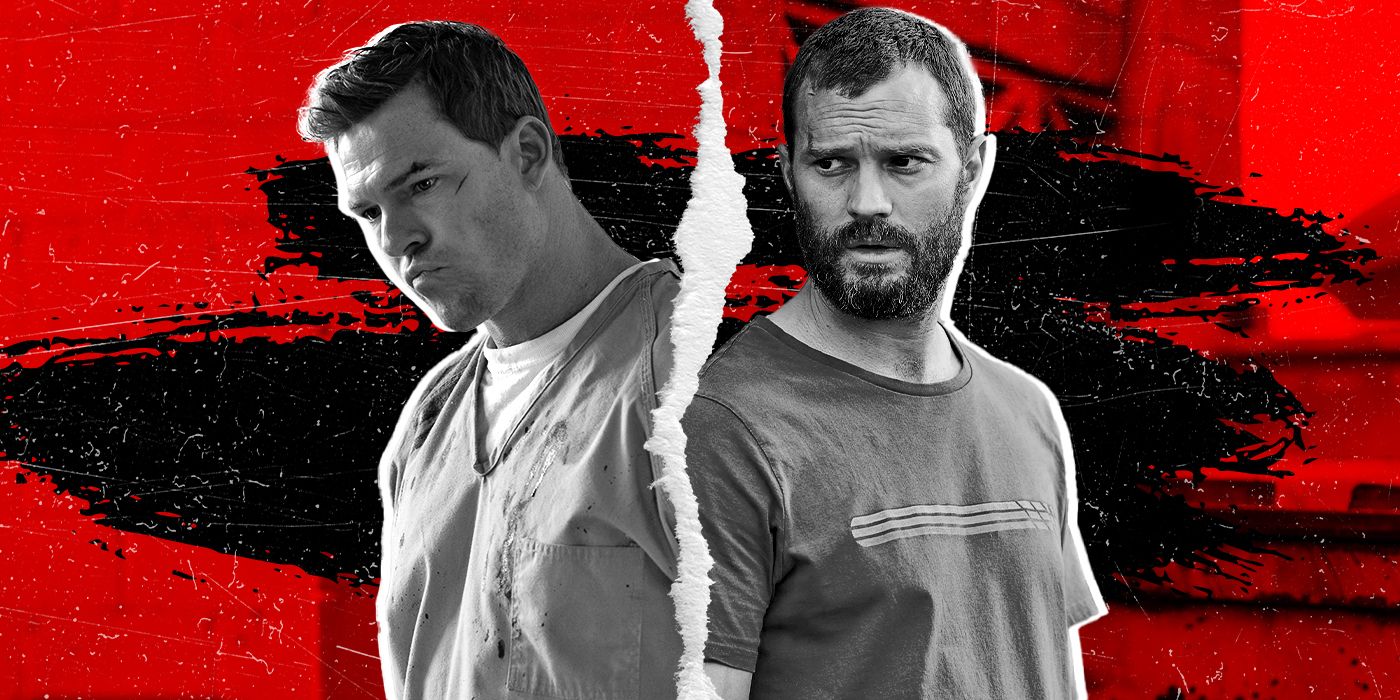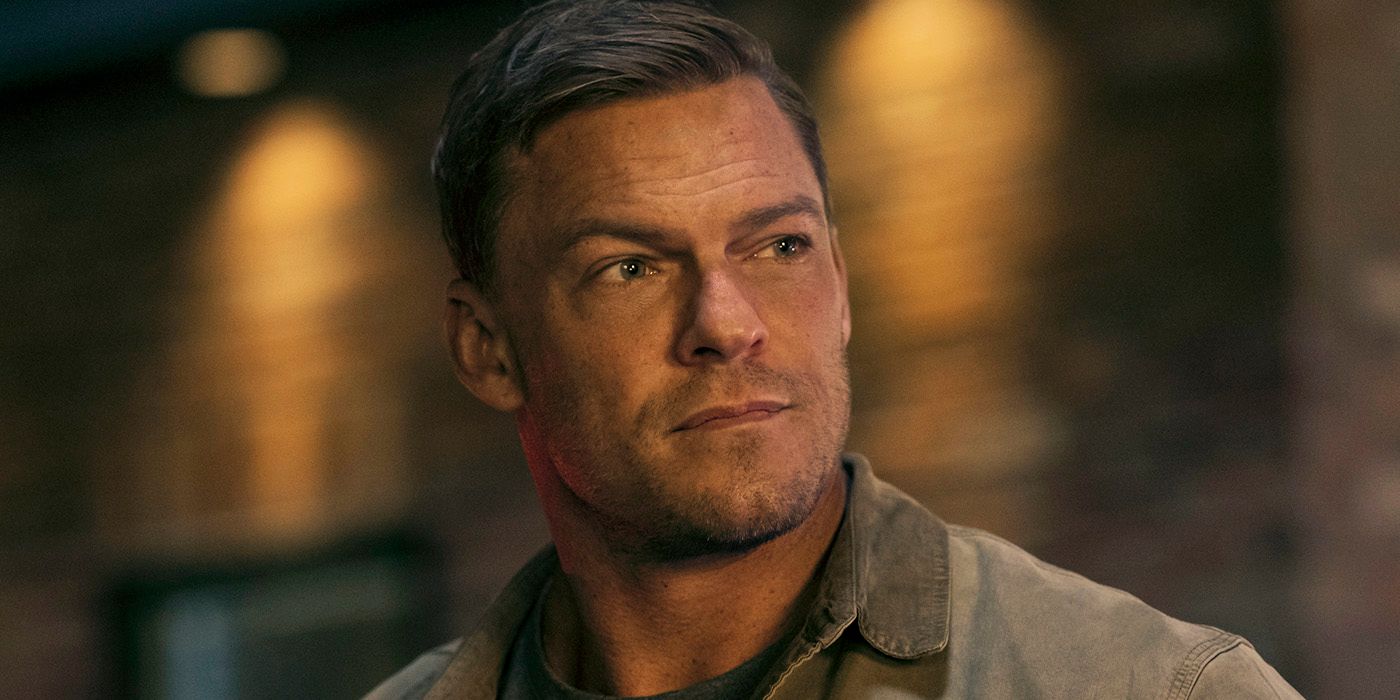The strong, silent type is a mainstay of on-screen alpha males, but is that changing?

THE BIG PICTURE
The streaming series Reacher and The Tourist represent the evolving portrayal of the stoic, tough protagonist in crime thrillers.
Reacher sticks to the traditional model of masculinity, while The Tourist introduces a more complex and vulnerable male lead.
Both series add freshness to the genre, but The Tourist offers a new kind of masculine lead with conflicting emotions and a need for self-discovery.
Brooding alpha-males have long populated crime thrillers in pages and on screen. The stoic, tough protagonist who has an unshakable will has led many a film and TV series, and is one of the earliest archetypes of characters.
However, as streaming ushers in a new age of entertainment, two current series, Reacher and The Tourist streaming on Amazon Prime and Netflix, respectively, better represent the presence of this character on screen and how it has evolved over time.
More specifically, the ultimate model of masculinity that was presented through hard-boiled crime fiction, noirs and most notably, westerns, is simultaneously being adapted and tweaked to show limitless scope and complexity.

The Tourist
TV-MA
Drama
Action
Mystery
When a man wakes up in the Australian outback with no memory, he must use the few clues he has to discover his identity before his past catches up with him.
Release Date: March 3, 2022
Creator: Harry Williams, Jack Williams
Cast: Jamie Dornan , Danielle Macdonald , Shalom Brune-Franklin , Olwen Fouéré
Seasons: 2
‘Reacher’ Depicts an Old School Alpha Male
For those unfamiliar with the term, hard-boiled fiction is closely associated with pulpy, unsentimental crime fiction, a genre pioneered by Carroll John Daly in the 1920s and one that gained prominence in the decades to come. It has been present in literature and on screen for decades now.
The storytelling is characterized by distinguishing factors that include a hardened, tough protagonist that deals with small towns and corrupt legal systems. Like Martin Hewitt, this character is supposed to be an “everyman” that is capable of solving a case through sheer grit and determination rather than any Sherlock Holmes-level skills. More often than not, such fiction is shepherded by a man’s man: a cigar smoking, possibly gun toting, but always serious.
Detective fiction has long since represented the traditionally white, hypermasculine male as its central figure. The Jack Reacher book series has followed this formula to a T, with a character that is rough, individualistic, cynical and capable of extraordinary feats of ingenuity when put in crisis.
You thus can’t fault the Amazon series Reacher for faithfully adapting the series and the world it inhabits. However, for all of Jack Reacher’s distinguishing features such as his tall, broad stature and “hobo” lifestyle, he feels like a stock character of the traditional male lead in genre fare.
There isn’t anything inherently wrong with the way he is adapted. Alan Ritchson plays the titular character, and does inject him with life. But Reacher can’t help feeling like he is a product of bygone times. An era that celebrated and dignified the heroic suffering of its leading men.
It feels like a more old school approach to the genre, with its lead being the picture of burly, quiet perseverance. Even Jack Reacher’s crying in the series is finely tuned, facial features contorted to represent anguish, but the kind that doesn’t emasculate him one bit. The show is clear that even in pain, Jack Reacher is fully in control of his faculties and every bit the macho man the books spelled him out to be.
‘The Tourist’ Takes a More Vulnerable Approach With Its Protagonist
On the flip side, formerly Netflix and BBC’s The Tourist takes a different approach to a similar character. The series is about an amnesiac Irish man who finds himself recovering from a car crash in the heart of Australia, unable to remember who he is and how he ended up down under.
The series embraces all the genre tropes that come with a project like this, from a femme fatale to robust action scenes to a handsome man in unfamiliar and hostile terrain. Yet, the show is decidedly off kilter in how it tackles the thriller, choosing to go for a more comedic direction at times whilst balancing the darker elements of the drama.
One of the more interesting choices it makes is having Jamie Dornan’s The Man break away from the quintessential heroes of series and films like this. Rather than a silent, meditative wanderer in search of his identity, Dornan embraces all the panic and fear a real person might feel when put in such a vulnerable position.
Therein lies the key difference in how The Man’s ethos contrasts with Jack Reacher’s. Unlike Reacher, The Man in The Tourist is plagued with self-doubt, guilt and burdened with the fragility that comes from having no clear direction or path to follow.
While he’s unquestionably “manly,” that doesn’t stop the show runners and Dornan himself from creating a character that displays various facades of the titular character depending on the situation he finds himself in.
He isn’t a happy-go-lucky sort by any means, but he is also not someone who can’t be moved to tears by the act of a simple hug from a stranger. The Man is at times gentle, but we also know, the further into the series we go, that he is a far cry from whom he used to be.
Yet all his humanity and bewilderment don’t reduce him from a leading man worthy of our affections. On the contrary, his multifaceted persona keeps us guessing and more entertained, and also unsure of who he is and what he is capable of.
The Idea of a Masculine Hero Is Evolving With Time

While all the makings of a classic noir or crime thriller are present in both Reacher and The Tourist, the latter’s take on a new kind of masculine lead, someone who is complicated not because he chooses to hold back information but because he has too much he needs to know, adds urgency and freshness to a genre that needs updating.
Reacher also has a significantly simplistic way of looking at the lengths he can go to champion justice. While Jack Reacher in the series isn’t a killing machine by any stretch, we also don’t get the sense that this character thinks too long and hard about the gray in morality. His worldview aligns with the classic heroes that populated classic westerns, where justice is not part of regulated social order.
Your mileage may vary in terms of what kind of sulking male heroes you prefer to align with, but as streaming proves to be the bountiful land of limitless possibilities, The Tourist and Reacher also underline that it is recording shifting sands of crime thrillers and the men that make them, in real time.
News
Reacher Season 3’s Narrowed Release Window Reportedly Revealed
SUMMARY Reacher season 3 could be released in early 2025. Sticking to a yearly release schedule could help Reacher grow its audience. This is especially true since Reacher has consistently high viewership similar to broadcast TV procedural hits. The release window for Reacher season 3 has…
Reacher season 3 premiere date: A tiny new tease
While there may not be a formal Reacher season 3 premiere date yet at Prime Video, there is something more that we can share! Previously, star Alan Ritchson had shared on Instagram that the action drama would not be back until 2025,…
Nicolas Cage Is ‘Terrified’ of AI and Got Digitally Scanned for Spider-Man Noir: ‘I Don’t Want You to Do Anything’ With My Face and Body ‘When I’m Dead’
Nicolas Cage said in an interview for The New Yorker that he is terrified of AI and is hoping recent body scans he had to do for two upcoming projects aren’t used as reference for AI technology to recreate him on screen after…
Reacher season 3 premiere date: The worst-case scenario?
We know that Reacher season 3 is coming at some point to Prime Video. Not only that, but filming is already done! A great deal of the groundwork has already been laid regarding the show’s future, and there is now just a…
Gods Of Egypt’s Casting Controversy Explained
SUMMARY Whitewashing of Egyptian gods with white actors led to a negative impact on Gods of Egypt. Lack of diversity in casting choices resulted in backlash, poor reviews, and financial failure. Movie’s failure at the box office emphasized the importance…
Gerard Butler disses ‘Free Guy’, Ryan Reynolds generously responds
Ryan Reynolds has offered a response to comments from Gerard Butler about his latest feature, ‘Free Guy’, and his other movies. Earlier this month, the ‘300’ star gave an interview to Unilad promoting it, and he included some scathing comments about Ryan Reynolds’ work….
End of content
No more pages to load











